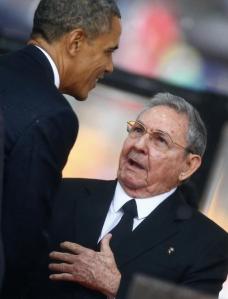By Lily Cusack
Russia Withdraws Warplanes from Syria
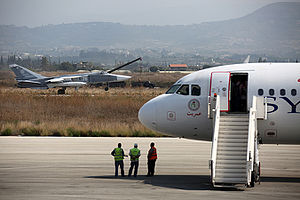
Russia withdrew war planes such as these from Syria on Tuesday, March 15, 2016. Photo courtesy of Wikipedia.
Russia flew their warplanes in Syria home on Tuesday, March 15, which the United Nations hopes will aid in the development of peace talks in Geneva, according to CBC. Russia has stated that they are still maintaining an air base and an undeclared number of forces in the country. The Syrian Organization for Human Rights has stated that Russian airstrikes have killed over 1,700 civilians, but Russia denies this statistic. The airstrike program has cost Russia an estimated $700 to $800 million. Russia supports Syrian President Bashar al-Assad’s regime and has been trying to put an end to the rise of the Islamic State in the war-torn nation. However, Russia has been increasingly frustrated with al-Assad, as he refuses to cooperate at the Geneva peace talks, which also include the United States. Russia is pushing for presidential elections, but they are leaving the question of al-Assad to inside, rather than outside, forces.
North Korea Sentences U.S. Student to Hard Labor
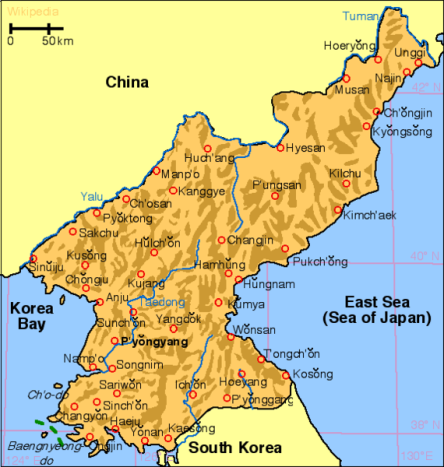
21-year-old student Otto Frederick Warmbier was arrested in Pyongyang , the capital of North Korea. Photo courtesy of Wikimedia Commons.
According to CNN, on Wednesday, March 16, an American college student was sentenced to 15 years of hard labor by the North Korean government while visiting the country. Otto Frederick Warmbier, a University of Virginia student, reportedly removed a political banner from his hotel room before leaving, which the North Korean government constitutes as a “hostile act” against the country. The government claims that Warmbier was supported by either a church in his home state of Ohio, a secret university organization, or the CIA to commit the act. Warmbier pleaded guilty and issued a tearful apology, but was sentenced only after an hour of the trial. Warmbier was arrested on Jan. 2 as he was about to board his plane to leave the country.
SeaWorld to Stop Breeding Killer Whales
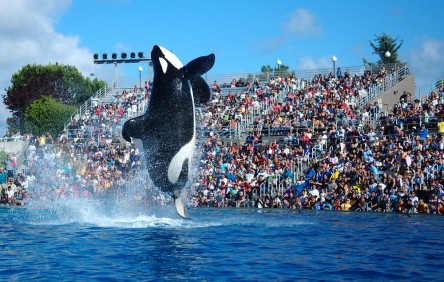
One of the multiple Shamu killer whales jumps during a show at Sea World San Diego in 2009. Photo courtesy of Wikipedia.
SeaWorld announced on Thursday, March 17, that they will stop breeding their killer whales in captivity, while their current killer whales will continue to perform in shows until their deaths, according to Calgary Sun. They will use birth control to prevent reproduction. SeaWorld, which has 29 killer whales under their care, have come under fire by activist groups for their treatment of whales in captivity. In 2015, three killer whales died within six months at a park in San Antonio, Texas. Since then, SeaWorld has implemented a new plan for viewing the killer whales. The whales will be shown at specific times, and the viewing areas will “reflect the natural world” while focusing on “orca enrichment, exercise and overall health.” For the next five years, SeaWorld will also partner with the Humane Society of the United States in providing $50 million to end commercial whaling and seal hunting and killing sharks for their fins. The company’s shares rose 8.2 percent on Thursday.
FlyDubai Plane Crashes While Landing

A FlyDubai plane like this crashed upon landing in a Russian city on Saturday, March 19, killing all 62 passengers on board. Photo
According to Bloomberg Business, a FlyDubai plane broke apart while attempting to land in Rostov-on-Don, Russia on Saturday, March 19. The crash, which took place during difficult weather conditions, killed the 62 people on board. After trying to land two hours earlier, the plane returned to the landing pad, where it crashed and immediately burst into flames. Flightradar24, which tracks and collects data concerning airlines, stated that while the plane was losing altitude, it was gaining speed. The Investigative Committee in Russia is planning on examining “human error, technical failure and difficult weather conditions” as possible causes to the crash. The flight had 33 women, 18 men, four children and seven crew on board. FlyDubai is providing $20,000 per passenger to the families of the deceased.
Paris Attack Suspect Arrested
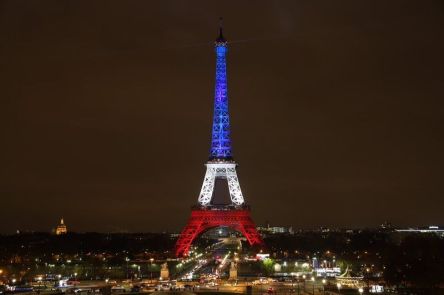
The Eiffel Tower illuminated in the colors of the French flag in honor of the November 2015 terrorist attacks in Paris. Photo courtesy of Wikipedia.
Salah Abdeslam, a key suspect to the Paris attacks in November, was arrested in Brussels on Friday, March 19, according to International Business Times. The Belgium-born French national has been in hiding since the November attacks. He was formally charged on March 20 with involvement in terrorist murder. Abdeslam is thought to have transported the suicide bombers to the Stade de France before they detonated themselves, as well as possibly purchasing the detonators. He has said that he planned to detonate his vest, but backed out at the last minute. Due to the large amount of heavy weapons found during the initial search, it is thought that Abdeslam was planning another attack in Belgium. On March 21, the government announced the search for Najiim Laachraoui, who has the alias of Soufiane Kayal, as an accomplice in the attacks.
Obama’s Cuba Visit
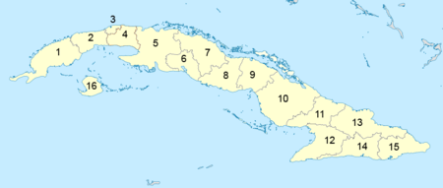
President Obama arrived in Havana, Cuba (province #3) Monday, March 21, 2016. Photo courtesy of Wikipedia.
President Obama is making a historic visit to Cuba this week. According to The New York Times, he appeared with President Raul Castro on Monday, March 21 to kick off the first official talks between the two countries since before the Cold War. This is the third in-person meeting since December 2014 when they announced that diplomatic relations would be restored. The two leaders hope to discuss how to smooth out their relationship and deal with differences that divide them. Obama has said that he wants to address the issue of Cuba’s repressive governmental procedures, which were evident in the detainment of civilians that had the potential to cause concern before Obama’s arrival.
